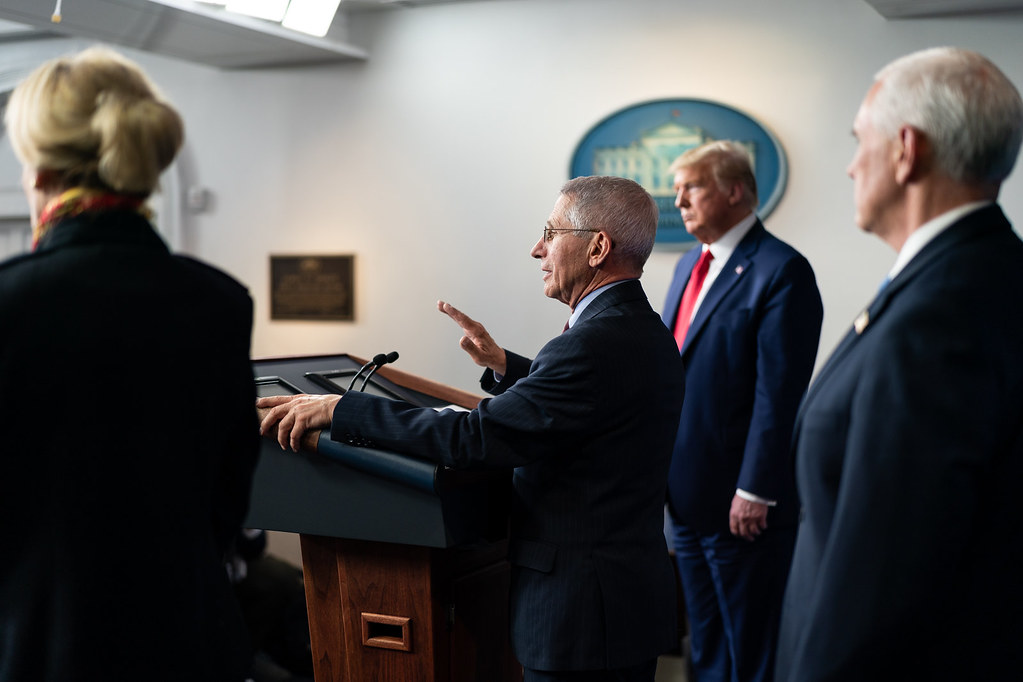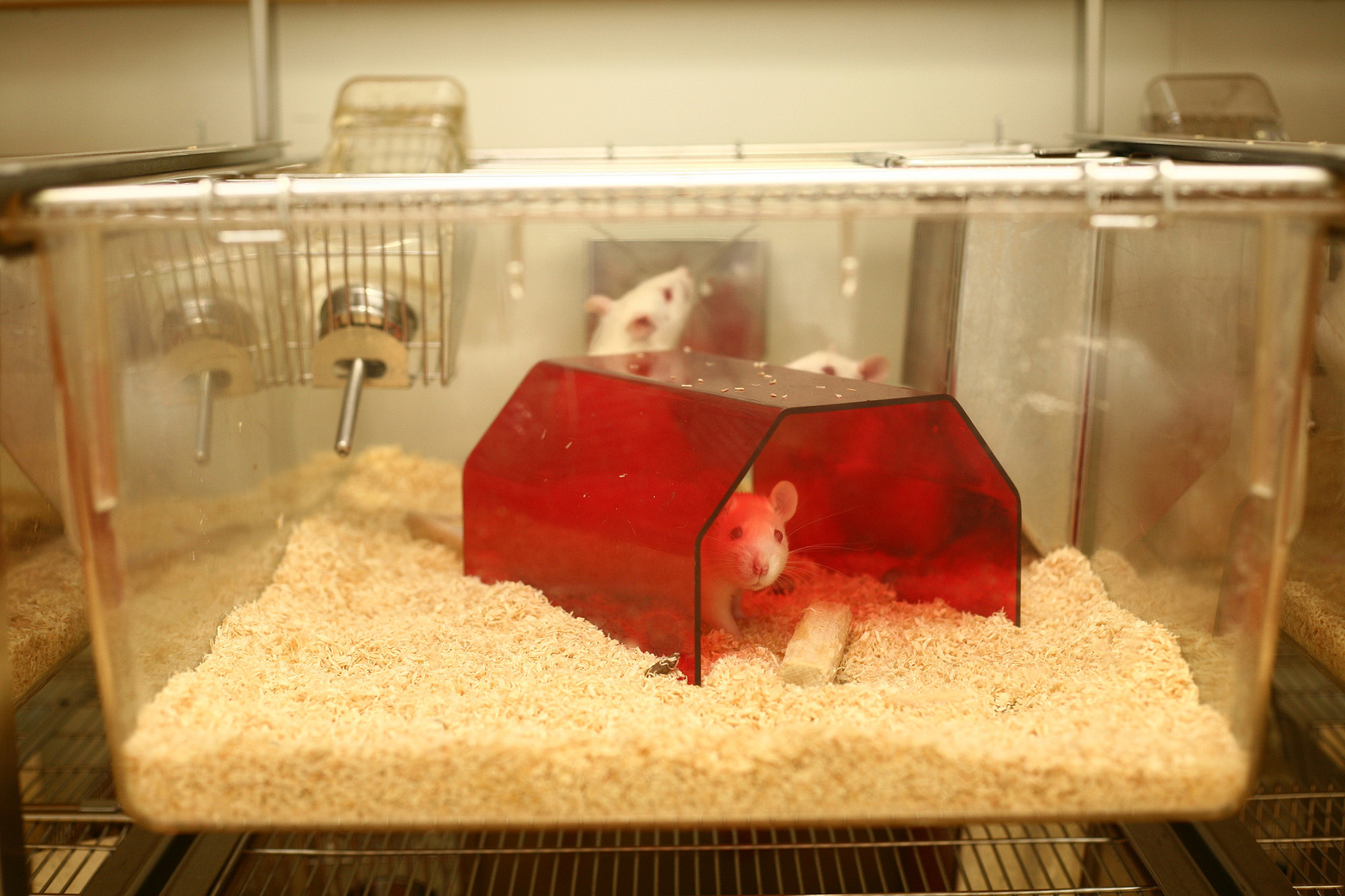Efficiency is the credo of a capitalist society. To the average person, “efficient” has a connotation of speed: if something is not getting done imminently, they reason time must be getting wasted. As the capitalist credo, efficiency often seems elevated to the status of a moral value. That is, a thing done efficiently (again, reading as “quickly”) is a positive moral accomplishment.
This confusion—and it is a confusion—is on full display during the COVID-19 pandemic. The race to find successful treatments, and hopefully a vaccine, for COVID-19 have institutions rushing the usual procedures for research and development. Animal tests would usually precede human testing. However pharmaceutical research companies like Moderna have taken the step of running such trials simultaneously. While people living under the pall of this novel coronavirus want a vaccine quickly, many medical experts—including newly-minted celebrity Dr. Anthony Fauci—urge researchers and policymakers to take the cautious route. These pleas, however, have largely fallen on deaf ears with the advent of initiatives like US President Donald Trump’s Operation Warp Speed.
Nor is the desire for efficiency limited to the development of a vaccine. There is a general desire for the legal and political handling of the COVID-19 pandemic to be efficient. Those who are more cautious and who believe the general public health consensus about COVID-19 want efficiency in the articulation and administration of laws and executive orders. NY Governor Andrew Cuomo enjoys impressive job approval ratings, as do most other states’ governors. Some of the governors with the lowest approval ratings are in states who have moved to reopen more of their states’ non-essential business and to do so more quickly (e.g., Georgia’s Brian Kemp). This is likely because, on the whole, Americans are in favor of many lockdown and social distancing measures, worrying that ending these measures prematurely will negatively impact public health. While apparently more newsworthy, the vocal segment Americans who want the lockdown to end (and believe it never should have started in the first place) is a minority.
Enthusiasm for “efficient” executive authority is not universal and has met substantial legal challenges. The legislature of Wisconsin recently successfully sued to overturn that state’s Department of Health Services stay-at-home orders. The Supreme Court of Wisconsin ruled that the orders were unconstitutional and unenforceable. The court’s decision, which relied largely on a close distinction between a rule and an order as defined by the Wisconsin Constitution, was panned by Wisconsin Governor Tony Evers as creating a state of “total chaos.” Reactions of other Democratic officials throughout the state echoed Evers’ concerns that an efficient response to the COVID-19 emergency would be hamstrung by the courts’ decision.
This illustrates the crux of the matter. Supporters of broad executive authority in the face of COVID-19 take an efficient response to be one which is centralized and univocal. The executive, along with their advisors and adjutants, should be able to do what is necessary to stem the spread of COVID-19. The Wisconsin Supreme Court objected that, even in the face of a crisis, statutory limits on executive power must be observed. This objection is of a kind with those made by Dr. Fauci, among others, concerning expedited vaccine development. Just as the statutory limits of executive power cannot be ignored, neither can the ethical safeguards on clinical research.
What this shows is that what counts as efficient is relative to the goal in question. If all that we want is the development of a vaccine that confers immunity to this novel coronavirus, then some of the standard procedures are inefficient. That is, they require the consumption of resources not necessary to produce the desired effect. However, if what we want is a vaccine that confers immunity and also has a low occurrence of significantly harmful side effects, then it is inefficient to rush the job. Likewise if we simply want to stop the spread of coronavirus, we could empower a single person to create laws by proclamation and enforce those laws by force. That is in effect what declarations of emergency by a governor or president allow, within narrowly-defined limits.
Efficiency then cannot be morally good no matter where it shows up. In the terminology of Immanuel Kant, efficiency is not “good without qualification.” In order for something to be good without qualification, Kant argues, that thing must be good in all conditions and circumstances. He says, for example, that pleasure doesn’t pass this test. After all, a sadist takes pleasure from torturing unwilling victims. Using a similar example, it is easy to see that efficiency fails Kant’s test. A sadist who invents a rack across which he can break multiple victims at once, with the crank of a single handle, is surely being quite efficient. He is also doing something quite repugnant. Just as the ends don’t justify the means, the means do not automatically confer any positive moral value to the ends. In fact, efficiency seems to act simply like a multiplier: if an accomplishment is already good on its own merits, doing it efficiently is even better; but if an accomplishment is bad on its own merits, doing it efficiently is even worse.
We want society to emerge from the COVID-19 pandemic as healthy and whole as possible. However the best ways to do that are likely not fast. Our medical, scientific, and political responses to this crisis cannot be swallowed up by their own sense of urgency. An efficient process is only as good as what it achieves. By casting away failsafes, we set ourselves up to aim unknowingly in the wrong direction.




